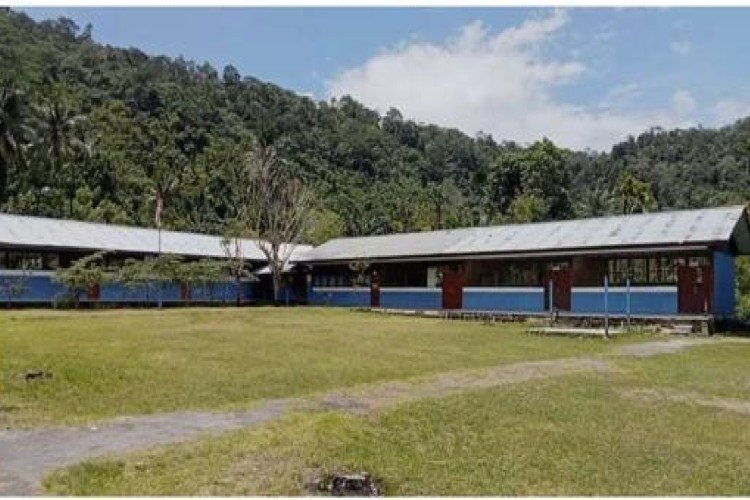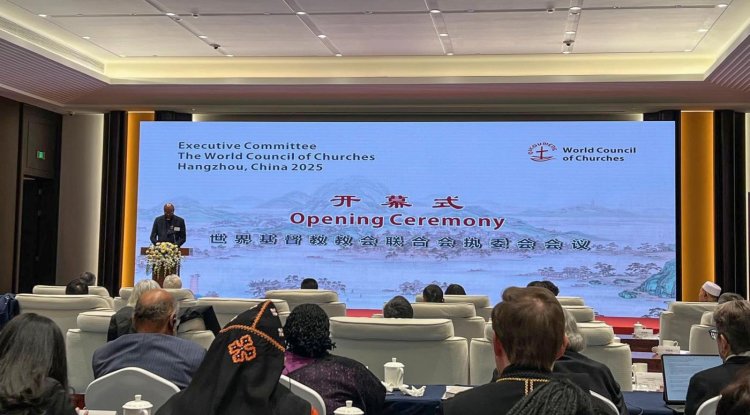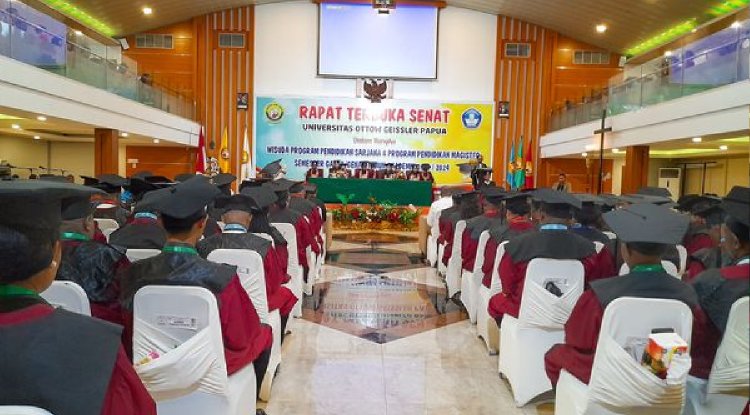Teachers in Papua: between appreciation and reality

Education is the main foundation for the progress of a nation. Behind a quality education system, there is a crucial role for teachers as designers of the future. However, the reality on the ground shows that the welfare of teachers in Indonesia, especially in Papua, is far from adequate. This is the main factor that affects the interest of the younger generation in choosing the profession of teacher. One form of appreciation for teachers is through the provision of adequate salaries. Unfortunately, in Indonesia, especially in Papua, teacher salaries are still relatively low. Especially for the majority of private and honorary teachers, their economic conditions have become unstable. When compared to Japan, the salary comparison is very striking. In Japan, a new teacher is appointed with a salary of around Rp 17 million per month, while in Indonesia, many teachers have to survive with salaries that are far below that. Japan considers teachers to be the key to development, so it rewards them with decent salaries. Here, Indonesia can learn from this approach. The government needs to increase teachers' salaries as a sign of appreciation for their important role in building the nation. Interest in becoming a teacher in Indonesia is declining, especially among young millennials. This cannot be separated from the public perception of low teacher welfare. In their eyes, other professions, such as doctors or engineers, are more promising from an economic point of view. By improving the welfare of teachers, public perceptions of the teaching profession will change. Teachers will no longer be looked down upon, and people's interest in becoming teachers will increase. This will result in healthy competition among future teachers to prepare as well as possible. The history of Japan after World War II shows how important the role of teachers was in rebuilding the nation. Emperor Hirohito realised that teachers were the roots of a nation's civilization. The quality of education largely depends on the quality of teachers. The teacher is not only an intelligent person but also has a kind personality and a sincere passion for teaching. The case in Biak Numfor Regency, where one Foundation School with B accreditation has only one teacher and is about to enter retirement, is a clear example of a worrying situation. Although the physical infrastructure of the school looks magnificent, the presence of educators is minimal. A professional teacher needs recognition from various parties, especially the government and foundations. Teacher welfare is not only a right but also an obligation to fulfill.Improving the welfare of teachers not only affects their motivation in teaching but also shapes the quality of national education. To realise the development vision, the development of the basic education sector in Biak Numfor Regency is currently focused on several aspects, namely: improving access to education; namely, the Biak Numfor Regency government targets that every school-age child in Biak Numfor Regency can access basic education. To achieve this target, the government has built a number of new schools in remote and underdeveloped areas. In addition, the government also provides tuition assistance to students from underprivileged families. Then improving the quality of education, namely, the Biak Numfor Regency government is also committed to improving the quality of basic education in Biak Numfor Regency. To achieve this target, the government has carried out various programmes, such as training and improvement of teacher competence, provision of adequate educational facilities and infrastructure, curriculum development and innovative learning methods, and also improving the quality of arning. Specifically, th the Biak Numfor Regency government is also working to improve the quality of learning in elementary schools in Biak Numfor Regency. To achieve this target, the government has carried out various programmes, such as the development of literacy and numeracy programmes, the development of character-building programmes, the development of guidance and counselling s, The basic education sector development programme in Biak Numfor Regency currently includes the construction of five new PAUD buildings in 2023, the provision of scholarships for outstanding students from underprivileged families, teacher training and competency improvement, the provision of adequate educational facilities and infrastructure, such as textbooks, teaching aids, and laboratories, curriculum development, and innovative learning methods, such as information technology-based learning. As is known, the government of Biak Numfor Regency targets that all these development programmes can be achieved gradually, so as to improve the quality of basic education in Biak Numfor Regency and produce qualified graduates. There are several indicators of the success of the development of the basic education sector in Biak Numfor Regency today: a high school participation rate (APS), which is at least 100% for elementary school-aged children; a low dropout rate, which is a maximum of 5%; The value of improved student learning outcomes comes from graduates of basic education who have the competencies needed to continue to higher education or to enter the workforce. We hope that the Biak Numfor Regency government will continue to improve the quality of basic education in Biak Numfor Regency so that it can realise a quality and competitive young generation. The Biak people, as the bearers of civilization in the Land of Papua, must pay attention to the welfare of teachers as a top priority. The key to this civilization lies in the teacher, who is the root of nation-building. By providing proper appreciation and welfare, Indonesia can ensure that the younger generation has the interest and passion to become qualified teachers.
What's Your Reaction?




















